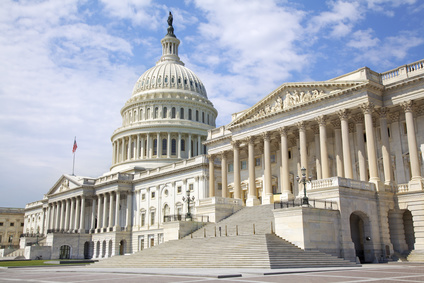The U.S. District Court for the Middle District of Florida recently granted a mortgage servicer’s motion to dismiss a borrower’s claim that the servicer violated the federal Real Estate Settlement Procedures Act (RESPA) by allegedly failing to respond in a timely or adequate manner to a written Request for Information (“RFI”). In so ruling, the Court held that the servicer’s conduct did not cause the claimed actual damages incurred in preparing and sending the letters to the servicer, as required by RESPA at 12 U.S.C. § 2605(f). The Court also referenced the Supreme Court of the United States’s ruling in…
Posts published in June 2017
The Court of Special Appeals of Maryland, the intermediate appellate court in that state, recently held that a party who authorizes a foreclosure trustee to initiate a foreclosure action on a deed of trust must be licensed as a collection agency in the state before filing the foreclosure lawsuit, and that this licensing requirement applies to trusts formed outside of the State of Maryland. A copy of the opinion in Blackstone v. Sharma is available at: Link to Opinion. A statutory trust formed in Delaware filed two foreclosure lawsuits against homeowners in Maryland through a substitute trustee. The trust through…
The U.S. Court of Appeals for the Second Circuit recently concluded that a consumer’s consent to receive manual or automated telephone calls is irrevocable under the Telephone Consumer Protection Act (TCPA) when the consent was included in a binding contract. The Second Circuit described the issue as one not previously addressed by the Federal Communications Commission (FCC) or any court of appeal – i.e., “whether the TCPA also permits a consumer to unilaterally revoke his or her consent to be contacted by telephone when that consent is given, not gratuitously, but as bargained-for consideration in a bilateral contract.” The Court held that consent…
In a bankruptcy preferential transfer dispute, the U.S. Court of Appeals for the Eighth Circuit recently held that the bankruptcy trustee could recover true overdraft covering deposits, while deposits covering intra-day overdrafts were not recoverable. A copy of the opinion in Joseph Sarachek v. Luana Savings Bank is available at: Link to Opinion. A company filed for bankruptcy and, 90 days before filing, wired funds to its bank to cover overdrafts. The bankruptcy trustee argued that those funds were avoidable transfers that could be recovered from the bank. The bankruptcy court agreed as to some of the deposits but not others. The…
The U.S. Bankruptcy Court for the Southern District of Florida recently held that a bankruptcy debtor’s Chapter 11 proceeding should not be dismissed as filed in bad faith to delay or avoid foreclosure, but could not confirm the debtor’s proposed plan to lease its commercial property asset to a business that generates income from medical marijuana. A copy of the opinion in In re Arm Ventures, LLC is available at: Link to Opinion. A limited liability company (“debtor”) owned 48.8 percent of a commercial property in Miami Beach, Florida (the “commercial property”) that was secured by a mortgage held by…
The U.S. Court of Appeals for the Seventh Circuit recently concluded that a consumer’s consent to receive promotional information from a retailer is sufficient consent under the federal Telephone Consumer Protection Act (TCPA) to receive other mass marketing texts. The primary issue the Seventh Circuit addressed was the scope of the consent the consumer provided when she gave her cell phone number to the retailer. The consumer argued that she only provided her cell phone number to receive special discount offers, and did not consent to “mass marketing” text messages. The Seventh Circuit rejected the argument, and determined that the…
The Appellate Court of Illinois, First District, recently ruled that the mortgagee of a reverse mortgage loan held an interest in the secured property to the extent that the borrower inherited an interest in the property following the non-borrower’s spouse’s intestate death. Accordingly, the Court reversed the trial court’s dismissal of the reverse mortgagee’s foreclosure complaint and remanded the matter for further determination of the borrower’s inherited interest in the subject property. A copy of the opinion in Reverse Mortgage Solutions, Inc. v. Rahman is available at: Link to Opinion. The borrower and his spouse purchased the subject property as…
The Supreme Court of the United States recently held that class action plaintiffs cannot stipulate to a voluntary dismissal with prejudice, then appeal the trial court’s prior interlocutory order striking their class allegations because a voluntary dismissal does not qualify as a “final decision” under 28 U.S.C. §1291 and improperly circumvents Federal Rule of Civil Procedure 23(f). A copy of the opinion in Microsoft Corp. v. Baker et al. is available at: Link to Opinion. A group of purchasers of Microsoft’s Xbox 360 gaming console filed a putative class action alleging that the Xbox was designed defectively because it scratched…
The U.S. Court of Appeals for the Sixth Circuit recently concluded that Michigan’s assignment of rents statute sufficiently deprived the assignor of the ownership of the rents such that the rents could not be included in the assignor’s bankruptcy estate. The primary issue before the Court was whether Michigan’s assignment of rents statute allowed the assignor to retain sufficient rights in the rents for the rents to be included in the assignor’s bankruptcy estate. The bankruptcy court determined that the debtor’s assignment of the rents gave the assignee a security interest in the rents but did not change the ownership,…
The U.S. Court of Appeals for the Second Circuit recently affirmed the dismissal of LIBOR-manipulation fraud claims brought by a group of hotel-related entities and their investor against a bank and two of its subsidiaries. In so ruling, the Second Circuit held that: (a) the borrower and related entities lacked standing to sue because they failed to list their potential claims in their bankruptcy case and the claims were barred by the doctrine of judicial estoppel; and (b) the claims of the investor and guarantors were untimely and barred by the law of the case. A copy of the opinion…
The U.S. Court of Appeals for the Eighth Circuit recently held that two borrowers’ conclusory affidavits by themselves were insufficient to rebut the presumption of delivery under the federal Truth in Lending Act, 15 U.S.C. § 1635(c), where the borrowers acknowledged in writing at the closing that they received the disclosures required under TILA. A copy of the opinion in Alan Keiran v. Home Capital, Inc. is available at: Link to Opinion. In 2010, before the Supreme Court of the United States’ ruling in Jesinoski v. Countrywide Home Loans, Inc., 135 S. Ct. 790 (2015), the borrowers filed this action…
With its unanimous ruling yesterday that a debt buyer is not a “debt collector” under at least one reading of the federal Fair Debt Collection Practices Act, the U.S. Supreme Court offered some clarity to the financial services industry seeking to assess debt purchaser FDCPA liability. It did, however, refuse to address an alternative interpretation that will likely be used in an attempt to end-run the ruling. The decision in Henson v. Santander Consumer USA Inc. is available at: Link to Opinion. Debt Collector Must Be Collecting for ‘Another’ Santander Consumer USA Inc. acquired defaulted loans from CitiFinancial Auto and then…












